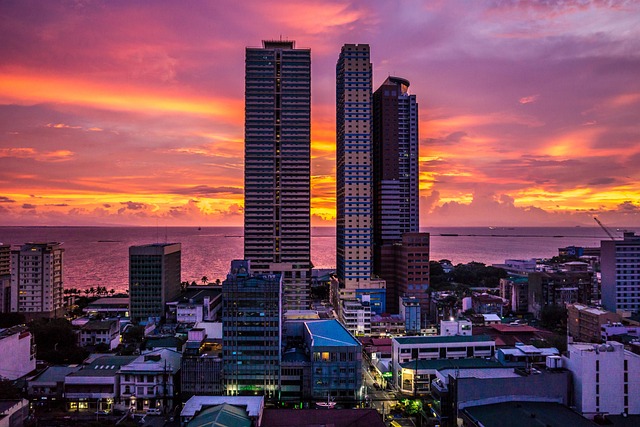Startup Philippines: Mapping the Philippines’ Startup Accelerator Ecosystem

The Accelerator Conundrum is a multipart series that challenges the prevailing wisdom of the tech startup ecosystem that entrepreneurs should Blitzscale out of the gate. Written by Sramana Mitra, the Founder and CEO of One Million by One Million (1Mby1M), the world’s first global virtual accelerator, it emphatically argues that a better strategy is to Bootstrap First, Raise Money Later, focus on customers, revenues and profits. 1Mby1M’s mission is to help a Million entrepreneurs reach a million dollars in annual revenue and beyond. Sramana’s Digital Mind AI Mentor virtually mentors entrepreneurs around the world in 57 languages. Try it out!
The Philippines’ startup ecosystem has been steadily gaining momentum over the past decade. With a population of 115 million, a median age of just 25, and rapid digital adoption, the country presents a fertile environment for innovation. Add to that a large English-speaking workforce, a robust BPO industry, and strong government interest in supporting entrepreneurship, and the ingredients for a thriving startup ecosystem are clearly present.
Yet, when it comes to startup accelerators, the Philippine landscape is still nascent and fragmented. While several organizations have stepped up to foster innovation, most follow a traditional, three-month cohort model that prioritizes rapid pitching and fundraising over sustainable, long-term company building.
Key Players in the Philippine Accelerator Scene
Here are some of the most notable players shaping the local accelerator ecosystem:
- QBO Innovation Hub
- A public-private initiative supported by IdeaSpace Foundation, J.P. Morgan, and the Department of Trade and Industry (DTI).
- Runs various programs, including incubation, acceleration, and networking events.
- QBO is one of the most visible ecosystems, offering founder education, mentorship, and community building.
- IdeaSpace Foundation
- Among the earliest accelerators in the Philippines, launched by PLDT and Smart Communications.
- Offers seed funding, mentorship, and corporate partnerships.
- Focuses on tech-enabled startups with potential to scale regionally.
- Impact Hub Manila
- Part of the global Impact Hub network, with a strong focus on social enterprises and sustainable innovation.
- Runs acceleration programs in collaboration with government agencies and corporate partners.
- Launchgarage
- Positioned as an innovation hub and accelerator, Launchgarage focuses on scaling startups through mentorship and strategic connections to corporates and investors.
- Known for bridging Filipino startups with regional Southeast Asian ecosystems.
- UPGRADE PH
- A government-backed initiative focused on regional entrepreneurship, especially in Visayas and Mindanao, outside Metro Manila.
- Plays a critical role in decentralizing startup activity beyond the capital.
- Other corporate-led programs
- Telcos like Globe Telecom and PLDT, as well as major conglomerates, run internal accelerators or innovation programs to integrate startups into their businesses.
Strengths of the Philippine Ecosystem
- Community focus: QBO and similar hubs have done a strong job of fostering collaboration and awareness of entrepreneurship.
- Government support: Programs like Startup Venture Fund and DTI initiatives provide resources and incentives.
- English fluency: Filipino founders are more comfortable pitching globally compared to peers in some other Southeast Asian countries.
- Growing regional linkages: Programs are beginning to connect Filipino startups to ecosystems in Singapore, Indonesia, and beyond.
Challenges and Gaps
- Short-term focus: Most accelerators run three- to six-month programs, leaving founders stranded once Demo Day ends.
- Fundraising bias: Too much emphasis is placed on pitching to investors, often before product-market fit is validated.
- Geographic concentration: Most resources are in Metro Manila, with limited access for founders in other regions.
- Limited capital depth: Early-stage capital is available, but growth-stage funding remains scarce, pushing startups to seek foreign investors prematurely.
The Philippines has an exciting foundation, but to truly compete globally, startups need continuous, long-term acceleration. In Part 3, we’ll analyze these local accelerators in depth, comparing them to the 1Mby1M model, which provides a scalable, founder-friendly alternative designed for sustained growth and global competitiveness.
This analysis will include a detailed comparison table, highlighting key strengths, weaknesses, and gaps in the current system.
One Million by One Million (1Mby1M) is the first global virtual accelerator in the world, founded in 2010 by Silicon Valley serial Entrepreneur Sramana Mitra. It offers a fully online entrepreneurship incubation, acceleration and education resource for solo entrepreneurs and bootstrapped founders working on tech and tech-enabled services ventures. 1Mby1M does not charge equity, offers an AI Mentor in 57 languages, and offers a distinct advantage over other accelerators including Y Combinator.
This segment is a part in the series : Startup Philippines
. The Philosophy of Startup Acceleration – Why The Philippines Needs a New Model
. Mapping the Philippines’ Startup Accelerator Ecosystem
. Comparing Philippine Accelerators to 1Mby1M – Strengths, Weaknesses, and Opportunities
. Why 1Mby1M and Its Filipino AI Mentor Are Transformative for the Philippines
Featured Videos
Can 1M/1M Help Me Raise Money?
How Does 1M/1M Democratize Entrepreneurship Education?
How Does 1M/1M Democratize Management Consulting?
When Is The Right Time To Join 1M/1M?
Can 1M/1M Help Me With Business Development?
Can 1M/1M Help Me With Market Sizing?
Can 1M/1M Help Me Validate My Product?
Will I Have Private 1-on-1 Sessions In 1M/1M?
How Does 1M/1M Help Entrepreneurs Connect With Silicon Valley?
Mentoring or Consulting?
Why Does 1M/1M Charge $1000 a Year?
Why Does 1M/1M Partner With Local Organizations?
Why Don\’t Mentoring Networks Work?
Why Is It Important To Study With 1M/1M Now?
Dan Stewart Story
Vikrant Mathur Story
